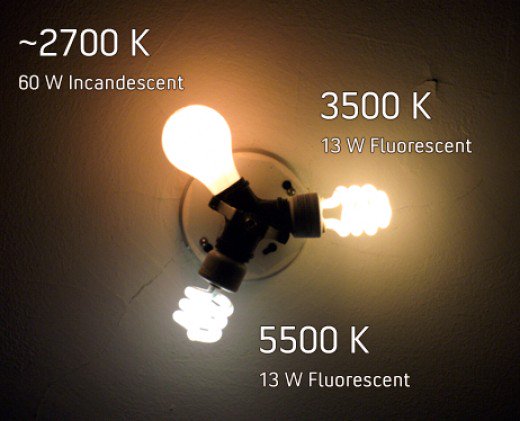So wählen Sie die richtige Farbtemperatur
Color Temperature of a Light Source: What is it?
You are most likely familiarized with concepts such as voltage and wattage, even if you don’t work in the electrical industry. We all know that if an electric device is connected to an outlet of the wrong voltage there is a risk of malfunction or permanent damage, and we also know that devices that consume more watts tend to increase the monthly electric bill!Color temperature, however, is a frequently overlooked concept. Despite its name, it has nothing to do with the real operating temperature of lamps and actually describes the color of the light produced.In simple terms, color temperature can be defined as the temperature to which you would have to heat up a black body to make it glow with the corresponding color of light. For example, if a light source has a color temperature of 4000 degrees Kelvin, in means the light it produces has the same color that would result from the glow of a black body at 4000 K. It is an abstract concept, but it provides a convenient way to assign a numerical value to the color of light.Low color temperatures indicate tones that tend towards red and yellow, while high color temperatures tend towards blue. The following image demonstrates the concept perfectly:
The Right Color Temperature for Each Application
One of the characteristics of LED lighting is that you can find lamps of practically any color that can be imagined. You will save a lot of energy if you upgrade to LED, but also make sure the color temperature is adequate.There is a wide range of color temperatures, and some LED bulbs can even adjust it within a broad range, but the general characteristics and applications of each color temperature are the following.
Warm White (Around 2700 K)
Warm white light creates an inviting and relaxing atmosphere, and it is the type of lighting you will want to use in the following applications:
- Bedrooms / hotel rooms
- Restaurants
- Decorative purposes
Warm white light is unsuitable for locations where work is carried out, since it may reduce alertness and productivity.
Clear White (Around 4000 K)
This is a neutral tone of white, suitable for environments where productive activities will be carried out, such as:
- Classrooms
- Office spaces
- Kitchens
Cool White (Up to 6500 K)
This is a tone of white that has a “cool” appearance and a slight tinge of blue. It is used for applications where maximum visibility is the highest priority, such as:
- High precision work
- Outdoor area lighting
- Bathrooms
You will definitely want to avoid cool white light in your bedroom, since it will tend to delay sleepiness at night.
Conclusion
Color temperature is a very important factor to consider when selecting lighting fixtures, since it can either enhance or disrupt the environment you are trying to create. Before purchasing LED fixtures for an energy efficiency retrofit, make sure you verify the correct color temperature for each application.If you have any questions, please do not hesitate to contact us!


